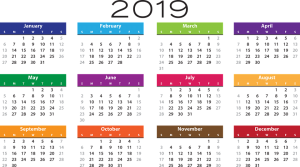Speak to parents of school age children, and many will be searching for that rare term-time job. It’s the perfect answer to the childcare dilemma. Work while the kids are at school and enjoy holidays without worrying about childcare costs. The problem is that there are hundreds of parents scouring the job adverts for term time jobs. Competition can be fierce. But could a bit of lateral thinking and preparation help you land your ideal position a bit more quickly?
Term Time Jobs in Schools
 Looking for work in schools is the obvious answer to anyone seeking term time work. If you have a degree, then one option is investigating whether you’d like to go back and train as a teacher. Graduates can enrol on a one year post-graduate course which combines academic learning with practice in the classroom. If you don’t fancy teaching, then look at support vacancies for classroom assistants or office admin staff. Many schools offer work on a part-time basis, term-time only. Some can even be flexible about the times you work during the week, depending on the role. Check the adverts for details of qualifications and personal qualities you need for the job. Jobs working in schools also mean you’ll have to apply for a DBS check. If you’ve already got a DBS for another job, you’ll have to reapply, unless you’re registered with the Update service.
Looking for work in schools is the obvious answer to anyone seeking term time work. If you have a degree, then one option is investigating whether you’d like to go back and train as a teacher. Graduates can enrol on a one year post-graduate course which combines academic learning with practice in the classroom. If you don’t fancy teaching, then look at support vacancies for classroom assistants or office admin staff. Many schools offer work on a part-time basis, term-time only. Some can even be flexible about the times you work during the week, depending on the role. Check the adverts for details of qualifications and personal qualities you need for the job. Jobs working in schools also mean you’ll have to apply for a DBS check. If you’ve already got a DBS for another job, you’ll have to reapply, unless you’re registered with the Update service.
Other Types of Term Time Jobs
Although schools immediately spring to mind when people are looking for term-time work, don’t discount other opportunities too. Universities and colleges might operate on slightly different timetables, but you’ll still often get a long summer break with the kids. Local Councils often employ people on term time contracts, and not just in areas of the council dealing with education. Similarly, the NHS and Civil Service might be willing to consider this style of working. Do your research. Having a full understanding of the role should help you decide whether it lends itself to term time only working. Most online job websites will allow you to search only for term time jobs. You can even save your search and request that any new jobs are emailed to you.
Tax, Salary and Pension Implications
How you’re paid will depend on what’s written into your contract. Usually, you’ll be paid every month whether you’re working or not. This is done by taking the hours you week over the course of the year, dividing by twelve, and paying you each month. The benefit of this is that you’ll still receive pay over the school summer holiday, even though you might have six weeks of no working at all. Other organisations pay you for the hours you’ve worked at the end of the month. If that’s the case, you may have to budget carefully to see you through non-working periods. As far as tax is concerned, this is averaged over the year, so you won’t pay any more or less. Term time workers are also entitled to the same pension, sick leave and other benefits as full-time workers.